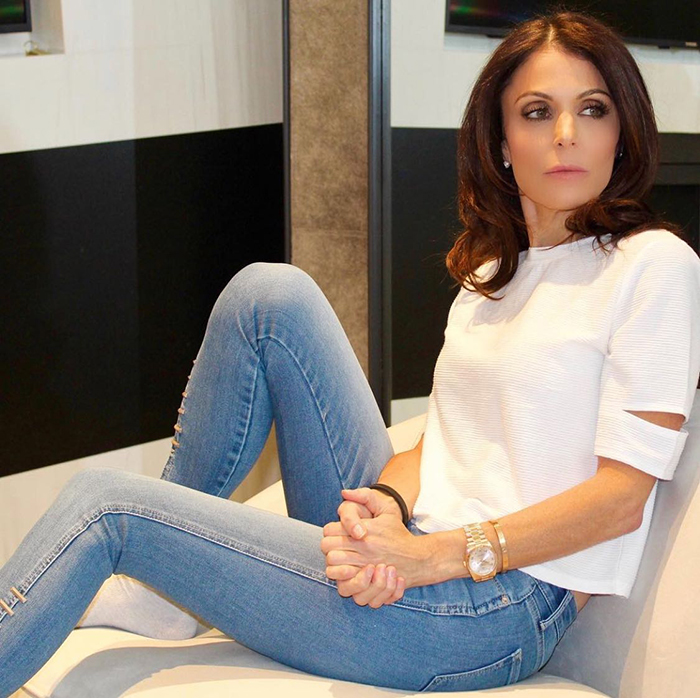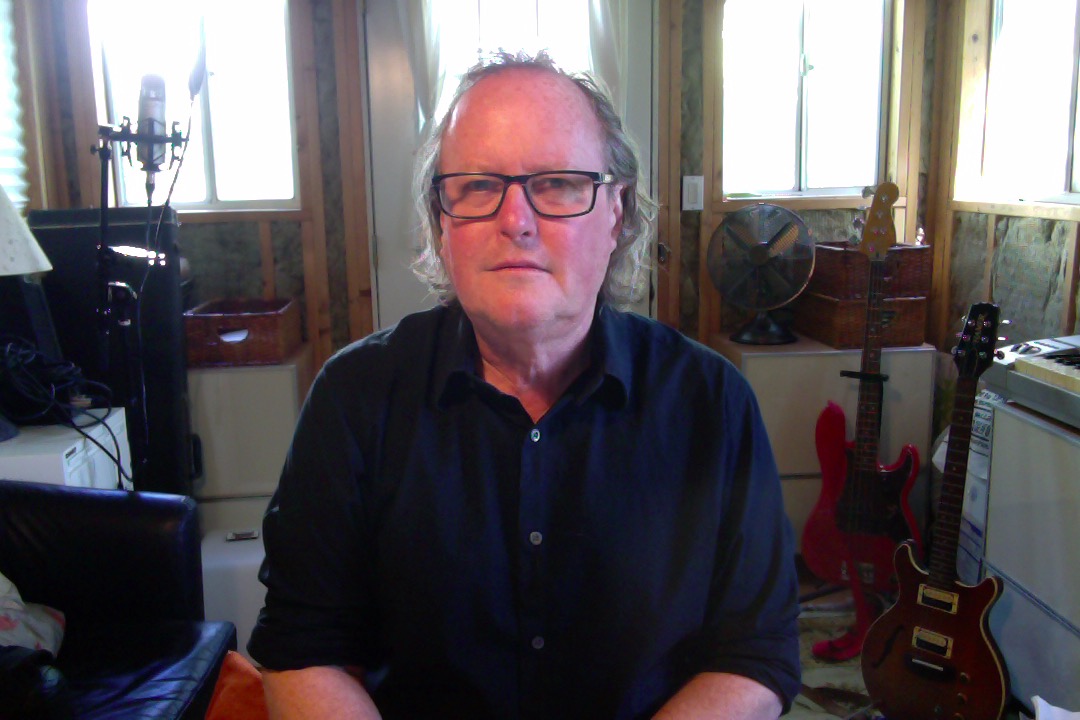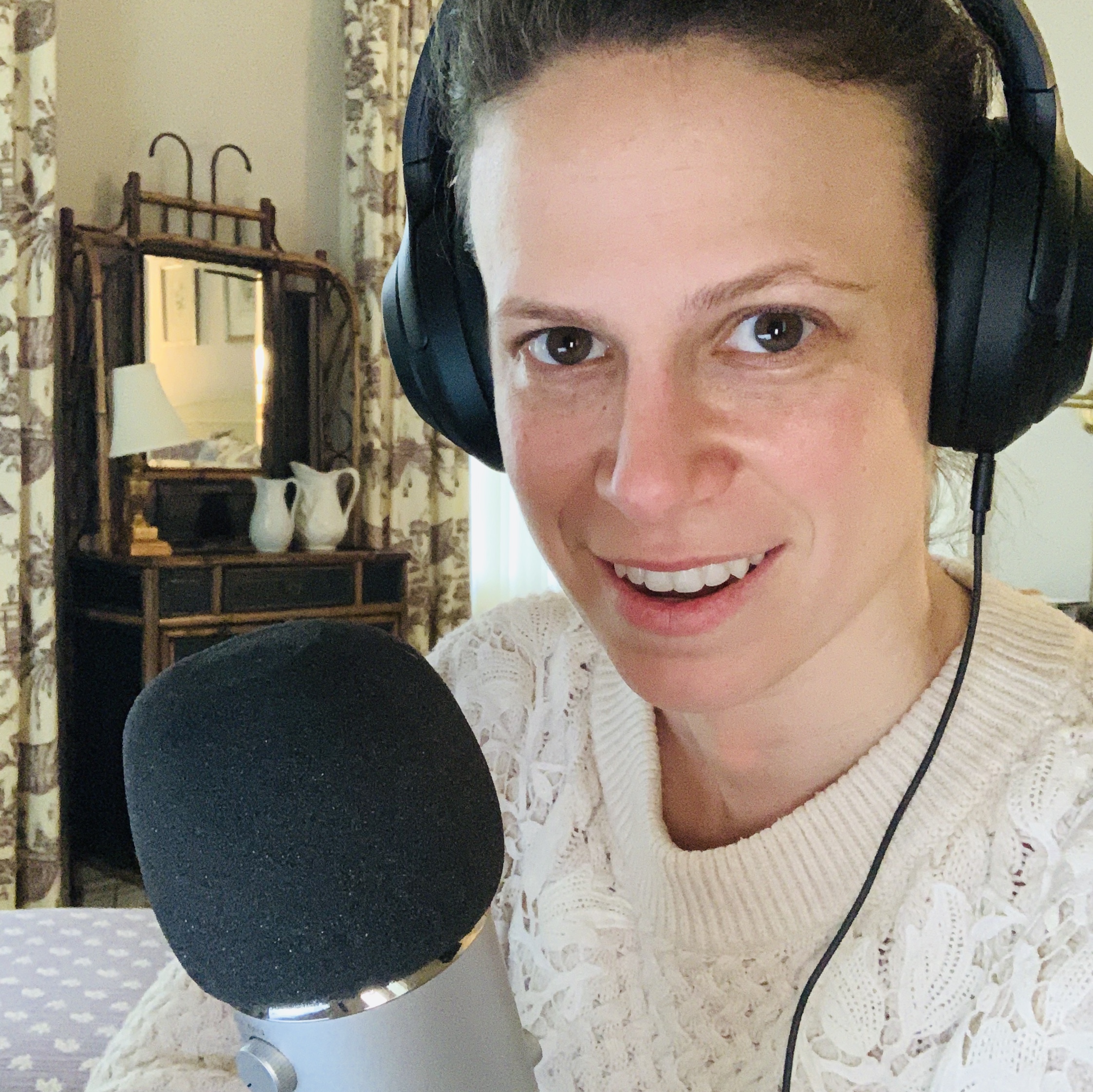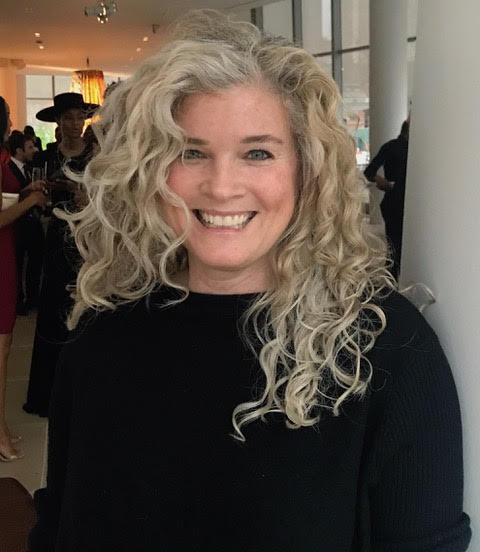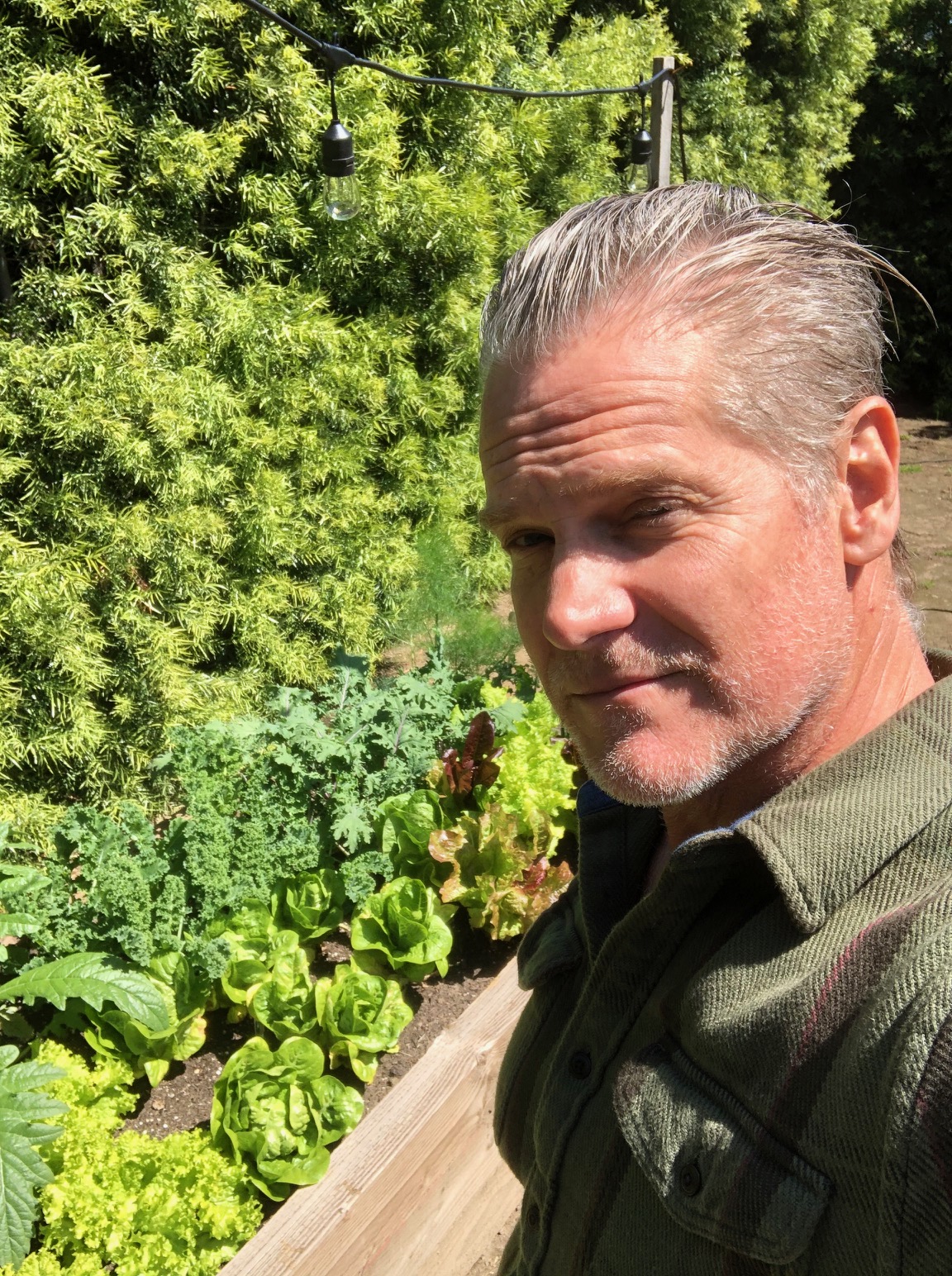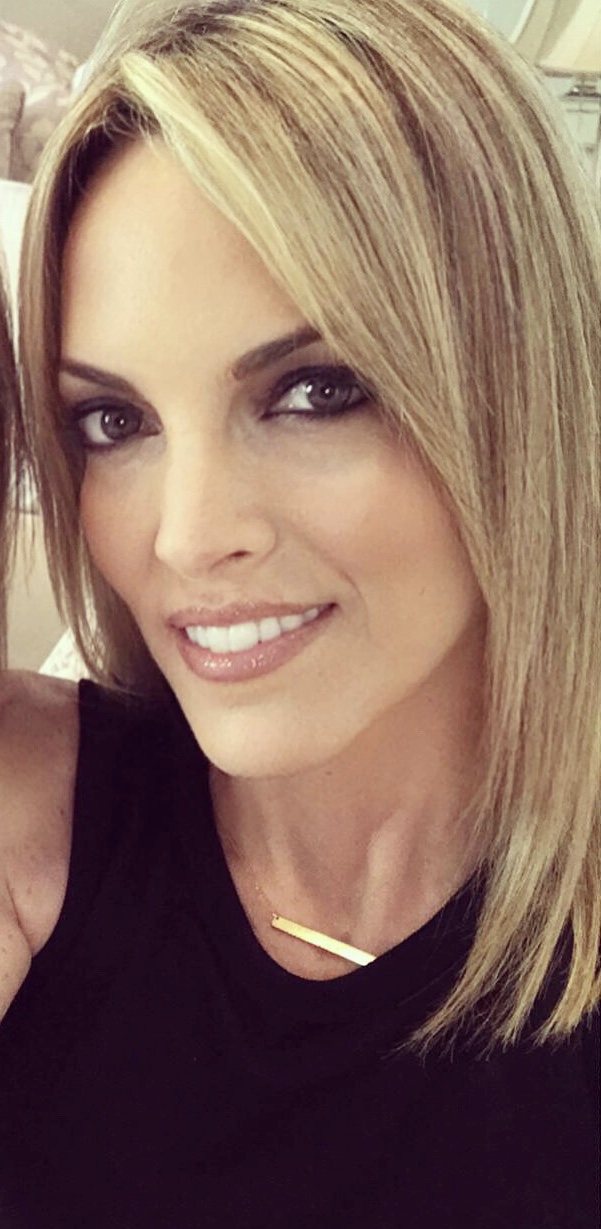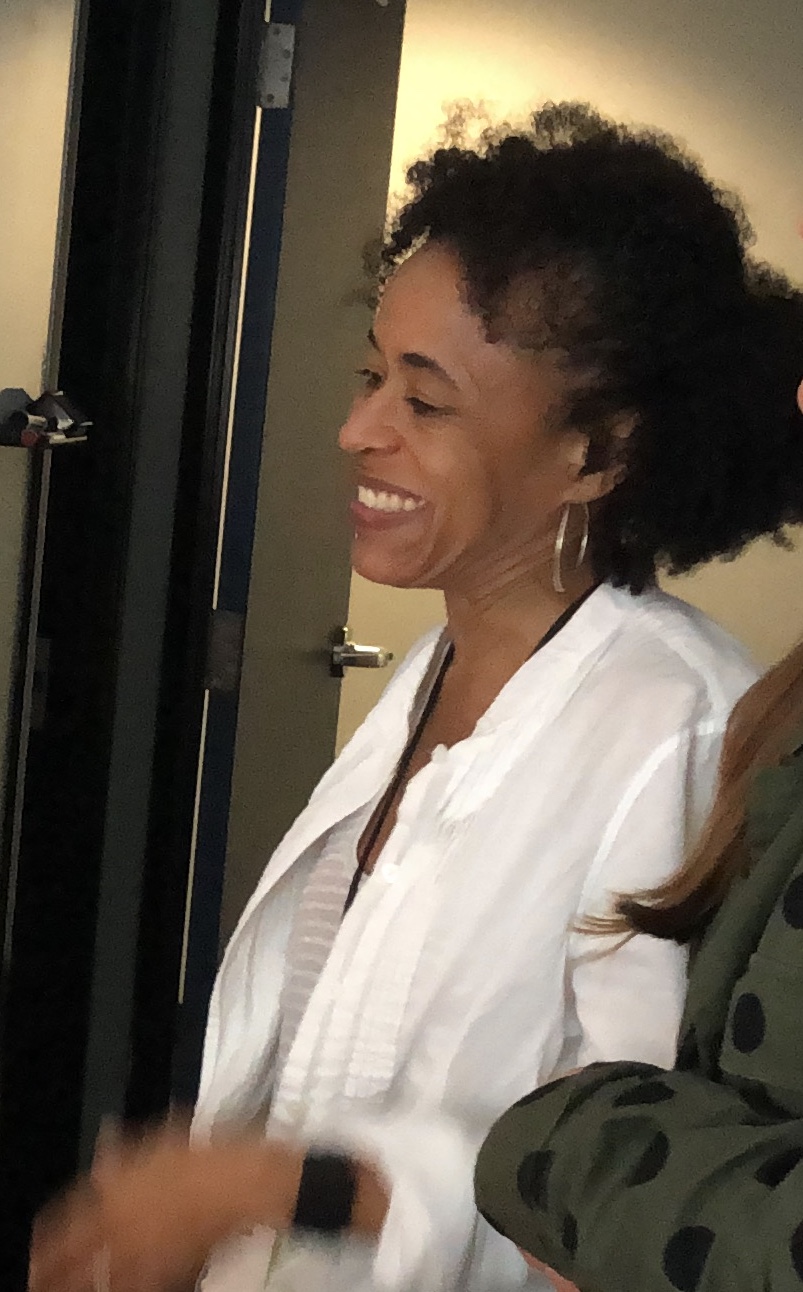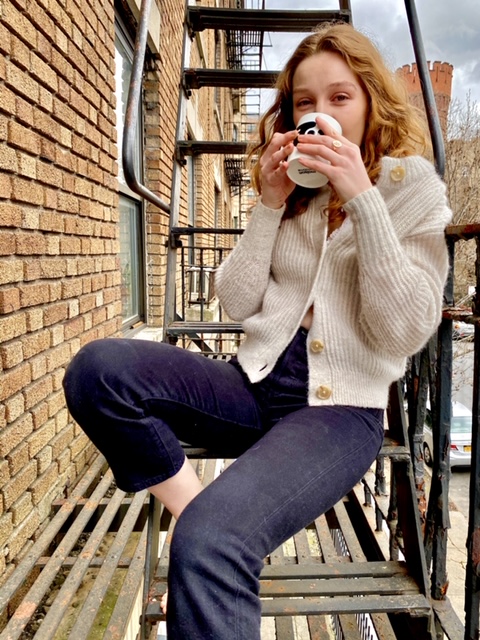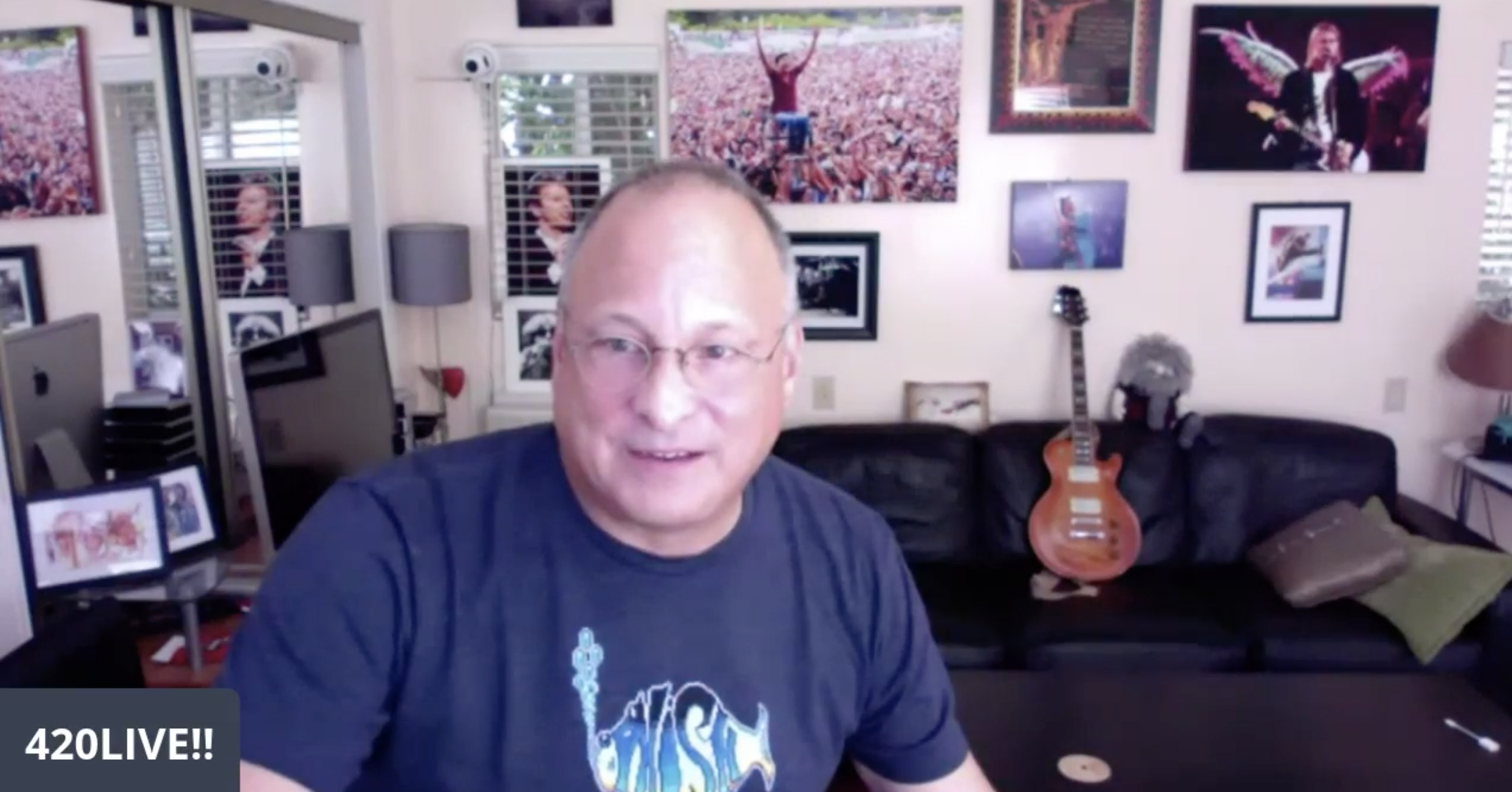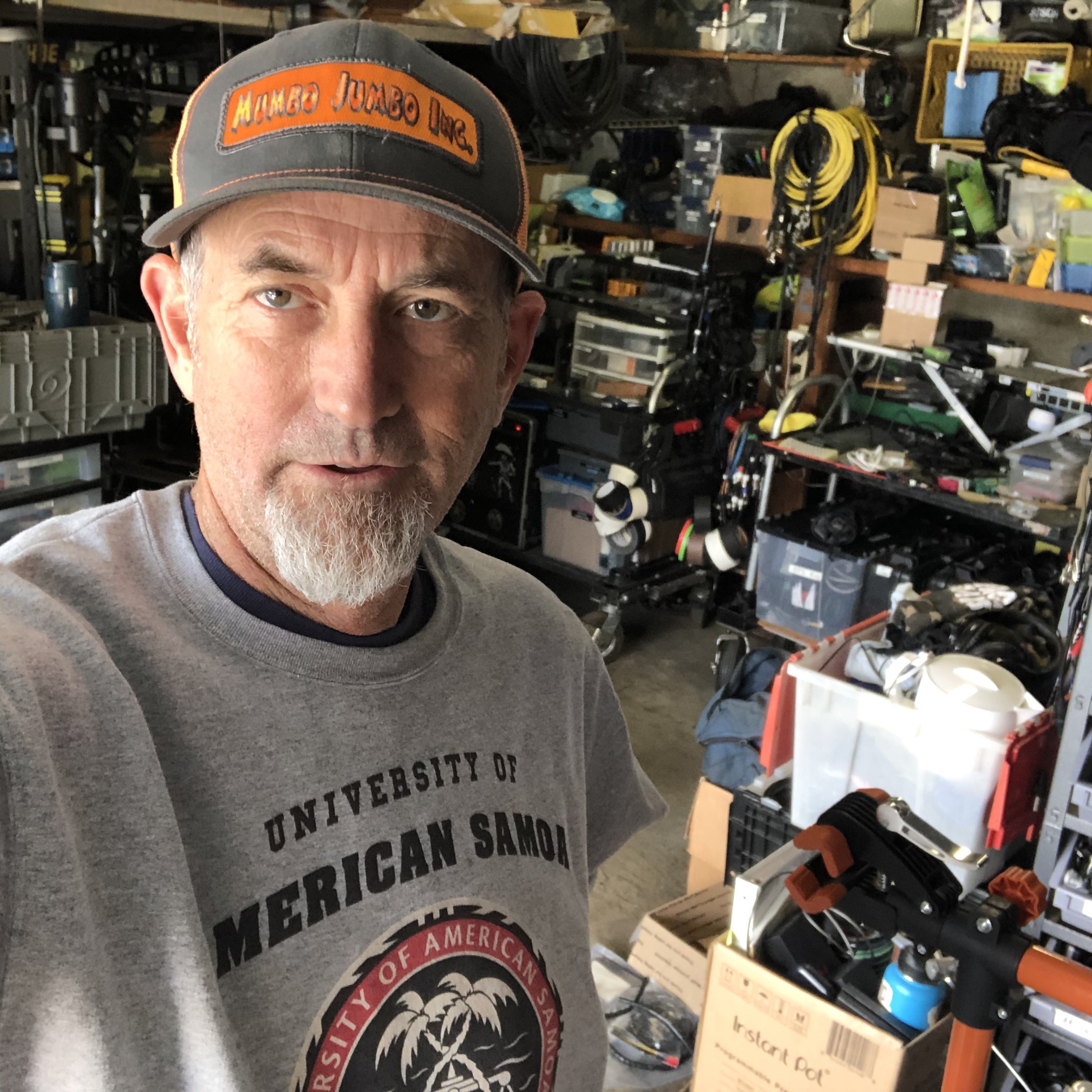Corona Chronicles: Bethenny Frankel’s BStrong Donates Test Kits, An Actor Reveals Diagnosis, and Other Personal Stories
By Variety Editors
LOS ANGELES (Variety.com) –
What can we do to help others? As the coronavirus continues to spread across the world, with more than 200,000 diagnosed cases in the United States, people have come together to show strength and kindness. Costume designers are using their resources to make masks and gowns. Tens of thousands of people on social media are donating money to help hospitals with shortages.
These are dark times, sure to be made worse. In the last few days, Hollywood has lost celebrated artists such as singer Adam Schlesinger and “Lord of the Rings” dialect coach Andrew Jack due to coronavirus complications. As we enter another week of quarantine,
Variety
gathers more personal essays from across the entertainment industry about how the pandemic is impacting Hollywood.
Bethenny Frankel
Philanthropist, Entrepreneur, Author, Producer
Donate: BStrong
From the beginning, Ellen DeGeneres had complete faith in me and believed in me and the
BStrong
mission. The corona kits began as an idea of prevention and helping mothers who had their kids home from school. The kits contained: wipes, hand sanitizer, soap, gloves and a mask. They also had hydration boosts, immune boosts and Vitamin C. It was my contribution at a time of a healthcare crisis that isn’t a disaster relief effort.
I started to read comments about coronavirus early on and started to realize this PPE thing was going to be an issue.
The people on the front lines without gear are walking into war zones without their battle gear. They’re having to make important medical decisions.
There are jokes on TV about not having stressed-out doctors. You don’t want them to deliver a baby or perform surgery when they’re having a bad day. You don’t want people caring for you that are getting sick themselves, stressed out, panicked and concerned for their own lives while doing the job that they took an oath to do. They are risking their lives.
I get thousands of messages a day from specific hospitals and specific people, elderly homes, you name it — every state and every city. This is rampant and it’s crazy.
We had to pivot our priorities. We still had to give out our corona kits to individuals, but also to our healthcare professionals who need their immune systems up and who need hydration and sanitation.
When we do the relief efforts, the planes and aid will be donated from all over the country and we can go and distribute the aid.
What’s happening now is you have to buy masks and gowns in a minimum of ten millions. People want to make money and so they’re not selling them to hospitals that need them. These hospitals have no shot of getting them. Only people dealing in tens and millions of dollars do.
As an organization, we’ve had to guarantee proofs of funds for up to $80 million and we can’t wait to raise all that money so we have to put it up ourselves and guarantee it.
BStrong gives 100% of the relief effort. The money donated is being used for the smaller hospitals and those that can’t afford their gear. Simultaneously, we’re working with the state government to get them exactly what they need so they can support their hospitals.
The other day, one million full-body hazmat suits went to the New York State of Health for upstate New York for Governor Cuomo. We sent 50,000 of those suits to Louisiana. Everyone who helps and donates feels empowered and connected because there’s complete transparency.
Nick Adams
Actor
2020 was the year I decided to move to LA. For as long as I can remember, I’ve always had a strong affinity for California. The West Coast has spoken to me with a gentle calling over the years, having spent time there for work on a handful of occasions.
Last spring, I toured through Los Angeles with the Lincoln Center Theatre Broadway production of “Falsettos.” During those months, I decided after 15 years of working in New York City, it was time to spend pilot season in L.A. I found myself a cozy rental in Beachwood Canyon, said goodbye to my partner and embraced the bicoastal life. I immediately felt peace. Why hadn’t I done this sooner? I was having a string of successful auditions, spent time with nature, myself, catching up with West Coast friends, and feeling creative. A new chapter was manifesting.
I flew back to New York after a few weeks to shoot a new Netflix series at the end of February. The day before my return flight, I started to feel ill. I saw my doctor who told me it was probably a cold and to simply monitor my symptoms. I traveled back to L.A. the next day. Then my partner began to feel ill. Headlines were accumulating at this point about the growing threat of coronavirus in the U.S. Within a week, the severity of the global spread became more vast.
The auditioning season out West had all but evaporated. My partner Kyle, who is currently a performer in “Moulin Rouge” on Broadway, called me in a panic to tell me that his show was canceled that day due to two cast members showing symptoms. This came on the heels of reports about an infected Broadway usher. Within an hour, the Broadway League announced the suspension of all productions until at least April 12. A move like this is unprecedented. Broadway hasn’t been dark since the stagehand strike. With this news, I scrambled to find disinfectant wipes and searched for the next flight to New York in fear we might be separated for the unforeseeable future.
I was fortunate enough to make it home on a near-empty flight, scoop up my other half and our dog, and make our way to an Airbnb in the Catskills. We have the virus. We are safe and isolated. We’re feeling healthy.
We are both now unemployed. A string of my gigs including symphony concerts and masterclasses were canceled. I have no money coming in. My partner is waiting for a decision from the Broadway League and Actor’s Equity regarding how they will be financially assisted during this time.
How do we move forward? This is the question that seems to be quarantined in my brain. The entertainment industry is all that I know. I can’t help but wonder what will happen once this pandemic passes. When the world is given the green light to return to work and go about life again, what does that mean for the only way I make a living? Who will be able to afford the luxury of a trip to NYC or the high ticket price of a Broadway musical? How long will it take for people not to be afraid to sit inside a dark theater in close proximity to strangers again? The impact that this will have on the performing arts is not known, but it feels impossible to immediately return to the life we knew before. I can only put my faith in the resiliency of my community, and remind myself that art is essential to humanity. It’s a medium that is of the most importance in hard times. Broadway has been the beating heart of New York City. A lifeline of commerce, tourism and appeal. A dynamism that is built upon dreams. But what will it look like when this all settles?
Maya Smith
Executive Director Born This Way Foundation
My to-do list at Born This Way Foundation fits into two categories: kindness and mental wellness. This pandemic has added to the urgency of our mission of building a kinder, braver world, and has made me more aware of the privilege I have and the areas where I can make a difference. In moments like these, the Foundation’s goals of making kindness cool, validating the emotions of young people around the world, and eliminating the stigma surrounding mental health, are at the forefront of everything we do, personally and professionally.
As an executive director, a mother, and a wife – among other things — I’ve mastered the art of weaving these roles and multitasking, but, admittedly, these days, things are a little different in the Smith household and for Team Born This Way Foundation. Today, I sat in the rain under an awning with my laptop to conduct a Zoom interview with a psychoanalyst for our
Channel Kindness
platform while my husband was on a conference call, and my kids were “learning” in front of the TV. It’s moments like these that I realize I’m not doing a good enough job and, whether I like it or not, for what will hopefully be a short while, I need to be okay with that.
I’ve been sipping my morning coffee from a mug that reads, World’s Okayest Mom. This mug assures me that if my children are smiling when they go to bed (or at least still talking to me), my husband and I are connecting, and my team feels supported and appreciated, everything is okay, and that will have to be good enough for now even as we welcome our newly adopted puppy, Kai, into the family. Kai is short for Kairos, which
means
“a propitious moment for the decision of action,” and thanks to Kai, I have an infinite amount of puppy cuddles and adorable pictures of my children to look forward to when I’m feeling overwhelmed. I’m a very okay dog mom too, and my children really, really love me for it.
As I’m spending more time at home, taking more time to virtually check-in with the Foundation team, and saying a prayer for the world around us, I’m reassured by the incredible acts of kindness happening all around us and the people who, despite the current obstacles, are embracing the notion of kairos by helping others.
Just this past week, I learned about three opportunities to take action in support of those in need. There’s
this spreadsheet allowing you to support unemployed servers in Washington DC
,
a GoFundMe called Mask Match
that matches people that have masks with frontline healthcare workers in need of resources, and
this fund started by the Domestic Workers Alliance set up for the families of domestic workers
that are struggling to make ends meet during this difficult time.
Through this, I’ve seen how whatever kind act you do at this moment, no matter how small, is valid and will have ripple effects far beyond that which you can imagine.
Instagram
@btwfoundation
Brooklynn Prince
“Home Before Dark” actress
It was Friday, March 13, and I was on set shooting for season two of “Home Before Dark.” We had just finished the first scene of the day when our line producer came in and announced that we would be going home because of this pandemic, then I felt my heart drop. I was surprised and sad that we had started the day and then It finished within what seemed like only one hour! So Jimbo (Sturgess), Abby (Miller), Michael (Weston) and the rest of the crew and I packed up and went home. Not knowing when we would be back.
I am coping with isolation by shoving my face in technology, which makes my parents unhappy, but hey what are ya gonna do? My family and I have also come up with some fun ways to stay entertained by building obstacle courses in our backyard, playing hide and seek (my 3-year-old brother is really bad at it though, because he always announces where he is), and baking. COVID-19 is scary. My great Aunt Barb, has been diagnosed and we are praying for her full recovery.
In times like these we need to stick together. We need to help each other. If someone needs toilet paper and you have some, share it because everybody poops, people.
If your friends are bored outta their minds, FaceTime them and give them some company.
Pray for the sick and for the doctors and nurses taking care of them.
We just celebrated my Papa’s birthday with my entire family on Zoom and even though it wasn’t how he imagined his birthday to be, he said it was one of the best birthdays we has ever had because his family all around the globe got on a call at the same time to celebrate him. It was something small, but it meant the world to him. Little things do go a long way.
Sonejuhi Sinha
Filmmaker
The global coronavirus pandemic has wreaked havoc throughout the entertainment industry. MGM lost $30 to $40 million pushing the “No Time to Die” release to fall. Studios can do this, push releases and absorb the financial hit. But what is the cost when the 2% to 4% in Hollywood, the women of color, the unicorns, lose the theatrical premiere of their first feature because of an unprecedented global pandemic?
My short film “Love Comes Later” premiered at the Cannes Film Festival. I wrote my debut feature at Cannes’ development labs, imagining that surely, somebody would want to fund my debut feature. I wanted to create a new language in cinema for the way that we see immigrant stories and perspectives of outsiders. These stories are given a very small box to fit into and I wanted to smash it in terms of storytelling, but also terms of style, through the medium of a crime thriller. However, getting it funded proved nearly impossible.
Finally, I decided to produce “Stray Dolls” on my own, risking everything to get my first feature off the ground. We premiered at the Tribeca Film Festival, won a special jury mention for performance and got distribution, with a theatrical component. In other words, we did the impossible. We had a five-city theatrical release lined up for New York, Los Angeles, Boston, Phoenix and Cleveland. My immigrant parents were ecstatic, personally calling relatives in those cities, telling them to check out “Stray Dolls” in theaters.
The coronavirus blindsided us in February, and by mid-March our theatrical release, initially set for April 10, was entirely canceled. Pushing a release entails costs that our indie film could not absorb. It was heartbreaking. Theatrical is a way to experience a film with an audience, to have a conversation about it, to have high-profile critics and cinephiles acknowledge the film in the canon of filmmaking and cinema. I needed the critical gaze on my first feature to catapult me to my second feature and to establish a career as a director. I wasn’t aiming to make millions at the box office and perhaps you cannot place a value on what exactly was lost when “Stray Dolls” lost its theatrical release.
As we reckon with this crisis as an industry, I hope that we go a step further than just making up for the financial loss. I hope that we use this as a galvanizing moment to lift new and bold voices that are also a casualty of the crisis.
Carl Peel
VP of Repertoire & Music Production at Universal Production Music
Working in music, a field that glorifies youth like no other, I’ve often worried that aging (I’m solidly middle-aged) is a detriment. But the routines I’ve developed in recent years are becoming a benefit. I’m working out of a little studio/office made out of my garden shed. It’s comfortable and cozy and there are no distractions, so actually, I’m getting a lot done. And it’s busy.
I get up in the morning, I make coffee, check my emails, shower and dress, just like any other day before all of this. Instead of walking down the hill to the Gold Line to make my hour-and-a-half way to our Santa Monica office, or get in the car for an hour a half drive, I stroll across my garden, a Contigo thermos of coffee and my laptop in hand. Then I settle in for the day.
I’ve got several album projects, and a few custom jobs to concentrate on, plus some admin, some staff counsel, planning, music searches and metadata to play with along with whatever comes up, via email mostly, rather than via someone popping into my office to chat. I’ve got a good little studio system here with ProTools and Logic and better speakers than at work. I have everything I need, and working is fine.
I do worry about my mother across town though. I make a weekly grocery run for her and walk her dogs. She recently celebrated her birthday. There was no party, no nothing really. I cooked her some food, baked a loaf of bread and I’ll do a grocery run this weekend for her. But even that gives me pause. What if I’m carrying the virus and unwittingly give it to my 77-year-old mother?
Worse is when I open the news, or Twitter or something and see what’s going on outside of my little garden shed and the tranquil hills I live in.
I consider myself very lucky, to have work to occupy me, while gaining three hours of commute time a day. No one I love has been stricken with the virus. I hope and pray that will continue, and that this all subsides soon. Maybe we’ll learn from this, to look out more for each other, to enjoy the simplest of things. I know I’m appreciating everything I have a lot more now.
Checco Varese
Cinematographer
In 1985, while working as a camera assistant for The WHO/PAHO ( World Health Organization/Pan-American Health Organization ), I got assigned to the very exciting Emergency Preparedness Team. We started a series of internal documentaries about infectious diseases, and because it was for internal use, we got to travel the world and visit many of the elite labs that at that point we were dealing with Ebola, anthrax, measles and malaria.
We visited the NIH and met and interned a young and talented researcher Dr. Anthony Fauci, (yes the same Dr. Fauci ). We traveled to Paris and met Dr. Luc Montagner. There were more lab visits to the WHO labs in Suriname and Guyana, and many others that now escape my memory.
We were taken to USAMRID (the public part of the lab) for a crash course in contamination and decontamination.
We were introduced to the various levels of hazmat suits–masks, gloves, full hazmat with respirators. The routine was the same, you change into your suit and you step into the contaminated area, work for hours (the drips of sweat and the need for scratching is unbearable, not to mention going to the bathroom, or being thirsty). Then there was the gear and cameras. Back then, I used the Arri III. It had to be covered with sealed splash bags and covers. There was no mag change, just 1000-foot loads, same lenses and an ever-lasting battery.
When you left, you were taken to a tent of sorts with a mist that would cover you with disinfectant. You’d step into another tent, removing the first layer and you’d be disinfected again. It was repeated.
Someone would decontaminate the gear and download the mags. We spent more than a year traveling the world filming in those areas.
Who would think that 25 years later, I’d be putting on a mask and gloves and glasses to drive to the grocery store? This time, staying six feet away from the nearest human. When I get home, the groceries go into the garage and are sprayed with disinfectant. My clothes go into the wash. I shower and I change into clean clothes. I remember most of the training — or so I hope — for the sake of my family and my friends.
Jenny Kaplan
Co-founder, CEO, & podcast host at Wonder Media Network
Sitting in a makeshift studio (a quiet bedroom) around dawn in the mountains of West Virginia, I’m struck by how much and how little my work has changed over the last few weeks.
There are still scripts to write and record, people to interview, meetings to lead, projects to pitch.
Recording in the time of coronavirus feels like a return to the early days of our company’s existence. Scrappy beginnings trained me well to seek out the quietest available environment — ideally a nice closet, less so under a duvet cover — in place of a snazzy studio. It takes more effort now than it did a few weeks ago to get guests to sign on for interviews, but still less than it did before we had a company track record. Congresspeople, business leaders, and activists are hesitant to commit. Circumstances are changing so quickly that many have a hard time imagining adding another appointment to juggling work and childcare, especially if that appointment is to talk about something other than the pandemic.
Business in the time of coronavirus feels like keeping calm while jumping into dystopia. My co-founder and I are charged with holding steady as the world around us shifts, with no end in sight. I’m scared as a small business owner about the uncertainty ahead. I feel tremendously lucky to be in a business that can continue — and even grow — in quarantine. We are still able to pay our team, to keep the proverbial lights on. Shows that are in season are coming out on schedule and we’ve even held two remote podcast kickoffs in the past week. I feel for the broader podcast ecosystem: engineers around the country previously contracted to record local interviews are no longer being hired to do so.
Our team has stepped up in a way that I couldn’t have imagined pre-pandemic. Physical isolation has forced us to be more purposeful with communications, more productive in meetings, and more open with the challenges we face. We’ve spent hours perfecting plans for remote recordings and communicating instructions to nervous hosts and guests. WMN now has its internal weekly podcast. We’ve taken hangout breaks and scheduled time to be silly. Zoom happy hours have devolved into competitions for who can come up with the funniest virtual background.
There’s a new sense of community spawned by these tragic circumstances. I’m energized by the current opportunity to rethink the way we communicate – How can we grow closer while keeping physical distance? How can we build a better future in isolation? I’m eager to join metaphorical (certainly not physical!) hands with others around the world to figure that out.
Tricia Regan
Director, “Autism: The Sequel”
I have two films trying to make their debuts in this crazy COVID-19 world.
The feature doc, “Ms. Diagnosed,” was due to premiere at the Cinequest Film
Festival in San Jose in March.
In the days leading up to the festival, there were many worried calls, and changes of last-minute plans, as San Jose became a coronavirus hotspot. I was assured that the screenings were well attended and the festival would go on – so we showed up – with “Ms. Diagnosed” hats and flyers and a helluva lot of excitement.
The day of our world premiere screening had arrived and the audiences at the festival had
slimmed to almost nothing. In the moments following the screening, the festival announced that the second half of the festival would be postponed until August. I traveled home on an empty plane, leaving from an airport where TSA workers were already carrying the virus.
My second film, “Autism: the Sequel,” a HBO film that is a follow up to the one I received the Emmy for in 2008 was supposed to have its NYC premiere at the Reel Abilities Film Festival on my birthday, April 4th . I had planned a large party – who gets to have a film premiere on their birthday, in their hometown, on a Saturday? I felt like the luckiest documentary filmmaker girl alive!
Well, we all know how that went. But truthfully my disappointment barely registers on the radar when it comes to the kinds of disappointments other filmmakers are experiencing. I’ve had my premieres at Sundance, at Tribeca, in theaters, heck I’ve won a friggin’ Emmy – and more importantly – I have an air date of April 28 already set on HBO for “Autism: the Sequel.” And – I’ve got a freelance job executive producing a four-part series for MTV that is in post-production, so for the time being, I’ve got a job.
I am good. I am healthy. I have work. And I have learned. Even when the world falls apart, there will always be a need for more movies and more television. There will always be work, and there will always be another chance to succeed.
Lila Drew
Musical artist
Like so many other young people, the scare of coronavirus four weeks ago was certainly real, but also quite distant. I’m a diehard fan of “The Daily” – the New York Times news podcast — I listen every morning, and remember hearing stories out of China where a virus was spreading in this town that I had barely heard of. I hate to claim ignorance, but now I feel I should’ve paid attention more to have prepared. I was spending all of my time working on new music in the studio before going into quarantine — working on a new record has been so fulfilling and amazing and I’ve learned so much from that.
I remember telling my mom the other day that my life has never come to a halt like this. I am always someone that has something to do and I’m all for giving the work to the busiest person.
Strangely, however depressing and anxiety-producing this has been and will continue to be, I haven’t been hating my time inside. I feel lucky to be living with my family at this time and have been cooking a lot, reteaching myself how to play guitar, writing loads of music (although I have to admit that creativity hasn’t been so easy to access!) and learning how to make clothing dyes from plants.
It’s been an interesting time to do things that my normal schedule wouldn’t usually permit which is kind of cool. I also have a new song called “Dad’s Van” released April 2, and it’s been very interesting trying to figure out how to put it out and promote it at this time. I feel that self-promotion can seem so insensitive right now.
Been trying to think about new ways to play music for people and to connect. That’s so important right now.
However, I’ve also been taking time to reflect on the music I’ve made and what I want to make, and spending a lot of time with my family. Oh and playing Animal Crossing on the Nintendo switch… and watching “Tiger King!”
I’ve been listening to a lot of Joni Mitchell and Joan Baez; that’s helping me adapt to this slower lifestyle.
Brian Van Holt
“Deputy” actor
Thankfully, we had just wrapped the first season of “Deputy” and I was gearing up to do my friend’s film in the Philippines before getting the news that all productions were being shut down.
As an actor I’m used to being unemployed for months, sometimes years, and I feel that I’m better equipped psychologically and emotionally to endure this difficult time of not knowing when you are going to be able to work again. I’m deeply concerned and worried for everyone in every industry that needs their weekly paycheck and/or tips in order to survive.
This has already been so devastatingly brutal and it has brought out the worst in some people. But at the same time, it has brought out the best. We need to be a united front on this and we will get through it and be better for it. I’m listening to the professionals, trusting the data and believing in the science. And most importantly, honoring the men and women who risk their own health and lives to help cure and maintain the health of us all by self-quarantining and social distancing.
My deepest gratitude goes out to these heroes and heroines. Our spirit is strong, and we will rise up and get through this.
I’m a very social and active person so I thought self-quarantining and social distancing would be extremely difficult and challenging. Not to say that it hasn’t, but I’ve been forced to address things that needed attention. I’m cracking every home project that has been neglected. I’m writing more. I’m reading books instead of scripts. My girlfriend is an incredible chef and she is teaching me how to be a better cook. And tending to my garden has brought me the most peace during this difficult time. We are so blessed to have a yard and a garden that allows us to spend time outside. It keeps me from going bat shit crazy.
The most difficult thing for me right now is not being able to see my folks. They fall into the high risk-category due to age and cancer and I won’t take that chance. But I’m able to talk to them and our conversations are more sincere. Less bullshit and more substance . It has actually been healing and beautiful at times.
Most of my relationships have become more sincere and meaningful. That could be the silver lining in all of this.
Right now, we just need to stay strong and focused. Help out where and when we can. Be considerate, be kind, and be loving. We will get through this! And we will be better for it.
Nikki Weiss-Goldstein
Agent / producer
I represent commercial, feature film and episodic directors to advertising agencies for branded content and commercial campaigns through my company Nikki Weiss & Co. We were bidding and prepping several projects when production suddenly halted. My clients obviously can’t move forward on any possible traditional shoots for brands and agencies, so we’re offering other creative solutions through animation and post-production.
I hope that all of the production companies, directors, crews, agents, producers, make-up artists, stylists, can weather this storm.
My wife Jill and I were also pitching a scripted series with our team, producer Danielle Claman Gelber and writer Kayli Stollack. We had stacked meetings and already pitched to Netflix, HBO Max, Peacock, CBS All Access, when suddenly our dreams were dashed with all further cable and streamer meetings canceled. Quibi’s Doug Herzog called Danielle to cancel about an hour before we were supposed to walk into his conference room.
When you work so hard in this industry and your dream is right in front of you, to lose the momentum is heartbreaking.
I hope current projects being developed or pitched continue to have the interest when we resume our regularly scheduled programming so to speak.
For now, it’s imperative that everyone stay safe, stay home and stay well.
Shoshannah Stern
Actor, writer, producer
Life changes fast. That’s a lesson we’re all presently learning. Just a few weeks ago, I was worried about juggling a couple of conflicting pins [for potential guest star roles] and how my interpreter should handle billing for meetings. I’m not worried about that anymore.
When in crisis, there’s a natural instinct to return to the familiar. If we can’t,
that causes anxiety. I should know: I have chronic anxiety attacks. They’ve forced me to become equipped to deal with what is now basically the universal mood. For what it’s worth, I’ve been self-soothing [by remembering this]:
(1) It’s OK to feel anxiety about this particular instance. We shouldn’t be hard
on ourselves for not adjusting to this new normal in five minutes.
(2) What we are feeling may not necessarily be anxiety, but worry. We’re all
worried about each other and the world. That’s also OK because that means we’re human. We should probably be more worried about those who aren’t worried.
(3) Most of the time, anxiety is isolating: You deal with it alone. Not this time.
Everyone is affected. Everyone is in this too, and because of that, everyone is
working on ways to make this better.
My constant mantra during anxiety attacks is, “This too, shall pass.” I recover
with another mantra — “Reset.” It means to change the way I process things, my routine, even myself. It feels like this current situation is a reset for everything and everyone, in ways that may have been long overdue. The only antidote to anxiety I’ve been able to find is to think less about yourself and more about what you can specifically do for others.
For me, that meant starting #OperationASLStorytime. Nine out of 10 deaf
children have hearing parents. Seventy-five percent of those parents don’t know sign language. This means that many, even most, deaf children are currently isolated at home without access to language. #OperationASLStorytime encourages native signers to sign storybooks and post them under the hashtag so that families can easily find them.
Hopefully, this way we can start a virtual community for our youngest members so that they know we are here for them. It also feels good to rediscover the joys of old childhood books during these unprecedented times, so I hope the community takes this hashtag and runs with it. Even if you’re not a native signer, you can take the time to amplify it.
And remember, this too, shall pass.
Montego Glover
Actress, “
All The Natalie Portmans”
I was working on a new play called “All The Natalie Portmans” at the MCC Theatre in New York when we received our closing notice due to the COVID-19 viral outbreak. City and state concerns meant actions had to be taken for the health and well-being of companies, crew and staff of live theater as well as our guests. We closed just over two weeks early. And while Broadway and off-Broadway anticipate being back up around April 13 that means we’ve got time to be with ourselves without our art forms to offer daily till then.
One of the blessings of being a part of the theater community in New York is that we are truly that: a community. Theater folk have gotten busy lending support. I’ve offered my #bwayhandwashchallenge with Theatermania on IG on behalf of The Actors Fund and nominated three friends to join me and other Broadway babies.
Being between projects whether forced or not is its own art form and as an actress I have a few key areas I’d like to touch on when I’m in that “in the meantime.”
I rest. I love what I do, but it’s a full-contact sport. Eight performances of anything in six days is a lot. So when I get the chance to rest I do.
I go deep. If I’ve got adulting I wanna get into I use my downtime to do just that. Anything from organizing drawers, cleaning out my storage unit, reading six new books in a week, anything. I take full advantage of the fact that I don’t have a curtain eight times a week. Getting regular, non-actor stuff done is so satisfying.
I look ahead and see what I want/need/must do down the road and I make a plan.
All this to say it’s hard to be away from my passion before I’m ready to be away. But I have found that taking that time to go deep, plan, and rest orders my days and makes the time feel full, balanced and really mine.
Here’s to the space between.
Stanley Nelson
Documentary filmmaker (“Miles Davis: Birth of the Cool”) and Co-Founder of Firelight Media
We have a documentary about the crack epidemic that we’re in the late stage of editing — which we’ve been doing remotely. It’s a slower progression than we’re used to, but it feels good to get work done and be creative, and to be very close to the final cut. But in no way has that process been ideal – you lose something without being face to face in the editing room for sure.
I had a festival premiere scheduled which is now postponed and that is a real dilemma. This film is finally ready and now we’re at this standstill of — what do we do now?
It’s even worse for the emerging filmmakers we work with who were counting on festivals to launch not just their films, but their careers. We were supposed to start shooting three projects in April including a massive undertaking for PBS about the transatlantic slave trade and now that’s all on hold. We’re project-based and are hoping that our funders give us more time, but another real question is if they’ll give us more money.
While we’re waiting to see what happens we are spending money, which is a huge drain on us. Like everyone else we’ve never been in this situation before so we’re exploring how we can keep moving all these projects forward.
We also run a non-profit organization that mentors and supports emerging filmmakers of color and most are facing tremendous problems right now. Not only can they not premiere their work at festivals, but many can’t work at all – the gigs that people in the industry survive on are gone. And as communities of color are hard hit by the virus, some of our folks are dealing with existential family issues. The future for many of our colleagues is very uncertain.
My wife and I are very lucky personally because we live in a large space in Harlem and two of our three kids are home. We’ve been adding to a running list of movies and TV shows that each of us loves, so every night we take turns and watch someone’s pick. I’m watching a lot of content that I normally would not
seek out and I must say it’s been great to just sit and watch other people’s movies.
It’s also made me not be as critical as I tend to be as a filmmaker.
Tim LeDoux
Crafty Apes Co-Founder & VFX Supervisor.
Last year, one of our VFX artists became a mom. She didn’t want to stop working, but between the commute, childcare, and the hours, it was going to be difficult to hold both jobs. It just didn’t add up. “Can I work from home?” she asked. Necessity.
We’ve been dipping our toe into work from home for a few years now. It started with IT workers who provide a necessary service and require availability 24/7. Later, a few supervisors got in the mix; company leaders who always need access and do whatever it takes to see projects through. When vital employees moved away, spouses got new jobs in distant locations, we had a solution. Necessity.
The home office is a secure location, secluded and under access control. Instead of sending files, we stream video data from office workstations into the homes of our employees. This increases file security and lessens the burden on the home user, and is a simple model to replicate on a mass scale. It can work.
Late at night, sometimes on weekends, I noticed someone rendering on our farm — it was our two-job VFX mom. She wasn’t with us in the office, but her work was still the same. She communicated, got her shots done, and was as well-trusted as anyone working on-site. It works.
Last month a paranoid (cautious) IT admin drove rather than flew across the country, coast to coast, for a face-to-face meeting. He was worried about coronavirus, worried about what it could do to us, worried about our business.
The news broke: lockdown. This was the moment we had done our best to prepare for. In a matter of days, artists packed up their desks, took their monitors and their remote hardware, a zero client and a VPN device, plugged them in and logged in safely at home. Every desk is empty, but the office is still alive. Necessity.
The world of visual effects is one of constant adaptation. The tools grow, the demands grow, and with every problem solved a new larger one comes to take its place. Our world has changed quickly and forced a necessary change., What was once approved for only a few is now required for everyone. We are home, we are safe, working, and it may never be the way it was.
Holland Millsap Noel
Pattern maker and fitter
I’ve been sewing since I was 6 years old.
I come from a long line of women with the skills to make amazing things with a sewing machine and cloth. When I first began working in television and film as a pattern maker and fitter, I carried around my great-grandmother’s sewing machine until I could afford a newer one. I’ve been a member of IATSE Motion Picture Costumers Local 705 since 2000.
Like so many people, I’ve spent the past few weeks watching the news and realized there would be difficult times ahead. When I saw on social media people were making surgical masks to ease the shortages it was like a call to arms. This is something I could do!
I reached out to a friend in our mayor’s office and to another friend who is a doctor on Los Angeles Counties Emergency Response Team. I researched the guidelines provided by the CDC and worked with the doctor on which mask design would be most helpful and started sterilizing and cutting up sheets and other cotton materials I have in my cache.
I put up a post on Facebook asking for volunteers to help out and a group of fellow IATSE members were quick to sign on. After a week we had over 1,400 masks in production and added more every day.
It’s supposed to be a scary two weeks so the push is on!
I’ve been distributing supplies to the group — we’ve moved beyond my flannel sheets with donations from our Facebook community and friends. Much of my time is spent communicating for donations, coordinating pickup and distribution of raw materials and finished masks.
I thought these masks would be used for health care workers treating non-coronavirus patients and possible other support staff members, but they have been requested by staff who find themselves in harm’s way and need to add a layer to their hospital-issued PPE to increase its usefulness and make it last longer. We also hope to provide grocery store workers, restaurant employees and others whose continued work is essential to our society. There is also a need to protect our most vulnerable. What is the saying? A society is judged by how it treats its most vulnerable members. Our homeless are not necessarily able to achieve the proper social distancing required for safety.
I had wrapped up work on the Disney Channel series “Just Roll With It” and was designing pieces for my line when the world began to shut down a few weeks ago. When the stay-at-home order was implemented for Los Angeles County I knew I had to find a way to be on the right side of history. My designing is irrelevant at this time. I think this has been the most life-affirming thing I’ve ever done. I believe I am part of the solution.
Teresa Hsiao, Hayley Adams, Samantha Riley, JoEllen Redlingshafer, Jess Dweck, Andrew Law, Kyle Lau, Karey Dornetto, Ria Sardana and Claire Jia
“Awkwafina is Nora From Queens”
We’ve been working via BlueJeans video conference for a little over two weeks now. In the beginning, it was a bit of scramble to figure out the best way to break a story, do rewrites, get joke pitches, implement notes, etc. – all the typical writers’ room stuff that’s a lot easier when you’re all together.
Luckily we’ve been working on Season 2 since the end of January, so we already had scripts written and stories broken. We’ve used a combination of Dropbox, Google Docs and Google Sheets to make sure everyone is on the same page.
Getting together every day has been nice to maintain some semblance of routine and normalcy.
And since these two weeks have lasted several years, all the writers have become way more familiar with each other. We’ve seen each others’ houses, we’ve all been to work in pajamas, we’re definitely getting used to hearing stories that solely revolve around going to the grocery store.
We’re incredibly lucky to have the opportunity to keep working through this pandemic. I can’t help but think about our main character, Nora, whose job in Season 1 as a ride-share driver would not allow her to work from home. There are so many people right now in that situation, who have lost jobs, or are struggling to stay afloat financially, or have lost loved ones to the virus. It’s strange to
focus on writing comedy during these times – especially when we hear about the attacks on Asian-Americans across the country. But eventually we will get through this, ideally with a more equitable, compassionate system that values everyone’s contributions. And when that time comes, hopefully, we’ll be ready to laugh again.
Kayli Carter
Actor from “Mrs. America,” “Bad Education”
Like many of you, my day is scheduled with the meals being the current highlight and a large focus of my energy. I’m lucky to be quarantined with my creative collaborators and one of the best home bakers in Brooklyn. My pal and I have gone through nearly four bags of flour, and we’re ready to join next season’s cast of “Great British Bake-Off.” The baking is the reason that keeping physical movement up is key.
If you are, like me, and find that creatively, not much is happening, That’s okay. I’ve had many conversations with my friends in recent days where we’ve had to remind each other that you don’t have to write the Great American Novel or record an album out of your bathroom. It’s okay if the most productive thing you’ve done is clean out your closet, or clean out your Netflix queue.
I am staying connected to my work by preparing for the things that will eventually be un-postponed. There will come a day when the film project that I was supposed to begin in mid-April will be back on track, and when that day comes, you better believe I’m gonna know that script front, back and sideways, WHY? Quarantine, Y’all.
I’ve found myself in books, a Jackson Pollock puzzle that is testing my sanity, and good friends who I’m keeping well-fed. I’m lucky. If the virus had hit this time last year, financially I would’ve been underwater, and I feel fortunate to only be derailed slightly, and not catastrophically. I’m thinking daily of those in my industry, who are the backbone of the restaurant industry as well, and hope that we can take care of each other during this time. This strange time.
Jonas Chernick
Actor, writer, producer
My new film “James vs. His Future Self” – four years in the making, my blood, sweat and tears as an actor-writer-producer — was slated to open in theaters all across Canada on April 3. It’s not easy to get a Canadian indie feature onto that many screens up here. A lot of people worked incredibly hard to make that happen. But, um, yeah. Theaters are closed.
So we pivot.
And now the film drops on the exact same day, all across Canada, on VOD and digital. Because we don’t want to wait. We want people to find our movie today.
We have something that people are hungry for right now: a
comedy
. And we have the added benefit of hundreds of Canadian journalists, critics and pop culture bloggers who suddenly have NO theatrical movies to write about. Lucky for us, they’re more interested than ever in talking about a Canadian success story – an indie sci-fi comedy, starring some familiar faces (Daniel Stern, Cleopatra Coleman, Frances Conroy) that just finished a great festival run, won some awards and is now coming directly to the isolated comfort of your living room.
So, yeah, it sucks that people won’t get to see the movie on the big screen, and I was depressed about it for about three days. But now I see it in a different context. People
need
a laugh right now. They need an escape. This movie is a warm hug. It makes you feel good. And it’s a time travel movie about being in the moment.
Wherever you are, be all there
. This mantra has helped me immeasurably these past few weeks. Because right now, all of us (just like “James”, the character I play in the movie), are obsessed with the future (what will happen, when will we go back to normal) and fixated on the past (if only we’d been more careful, if we could go back and have a do-over).
But if we can all just stop, and take a breath, and be with ourselves, with the children who we have such a precious opportunity to connect with right now, with our parents who we too often take for granted, with our partners who are here by our sides – then we’ll know that we can get through this together.
Jeff Kravitz
President, photographer of FilmMagic.com and WireImage
I was set to do the iHeart Radio Music Awards on March 29, which would’ve marked the first time in 20 years I missed the New Orleans Jazz & Heritage Festival. I keep thinking that’s the reason this all happened. I karmically upset the cosmic cart.
I started this Facetime/YouTube live Webcast/talk show every day during the week at 4:10p (PT). I’ve had Stewart Copeland, Justin Bieber’s co-manager and SB Projects President Allison Kaye, on the show. I’ve been getting anywhere from 2,000 views to 4,000 for the Copeland interview. Broadcasting is in my blood.
My late father Pinky Kravitz was on the radio in Atlantic City, New Jersey, for 56 years. When I was a teenager, I used to substitute for him as a host and have guests of my own. By the time I’m finished doing a show, I’m walking on air.
I’ve been learning how to be a webcaster, and I have all the time to do so. This may well be my new career, the very thing that keeps food on my family’s table through the summer, just like it was for my dad. And that, to me, is coming full circle.
What I’m trying to do is provide a sense of community. My guests give out information on how to donate to their non-profits or charities. I don’t even know how to make money from this, but I’m sure I can learn. I miss hugs, seeing my friends, live music, going to shows, being able to pop in my car and go to a restaurant, sit down and eat.
I’ve watched “Tiger King,” “The Outsider” and “Westworld” on HBO, and I’m just starting to dig into season three of “Narcos.” I usually don’t have time to sit around, get stoned and watch TV. I’m catching up, but I always fall asleep. I’ve been playing my guitar a lot. Last Saturday night, I went live with lasers and a smoke machine and performed a 24-minute guitar solo on Instagram Live. All these other musicians were so chill, playing acoustic guitars in hushed tones, I just thought, why not? I want people to just pop in and wonder, “What’s going on there?”
I have an optimistic attitude toward life, which I got from my father, who always told me, “accentuate the positive.” I’m also a realist, so I have a good grasp of what’s going on. But this crisis made me question things I’d never questioned before.
It has brought my family together without any outside interruptions. In some ways, that has been energizing. I’m hoping people will have used this time wisely and when it’s over, we all come out the better for it.
Scott Harber
production mixer, “Barry”
I just finished a movie that was based out of Georgia and came back to start season 3 of “Barry” for HBO. We were to start shooting at the end of March but I got a call from production that they were not going to be shooting on the 10th. They expressed that there would be a six week delay which I found to be honest and forthright rather than being vague. That has helped me. Knowing that I can do other things without worrying about missing work. Not that there is much to do.
All the projects I work on and overlap have stopped. Most seem to be offering compensation of various forms.
“Barry” and HBO have my admiration and respect in how they have been treating those who are working for them. They took care of not only myself as a department head, but also my crew. And we hadn’t even started shooting yet. Kudos to them. They truly have my allegiance after this.
By HBO doing this I am not having any second thoughts about paying our cleaning lady to not come over, or to donate and be helpful in ways I generally wouldn’t.
I work on set as a production mixer recording actors talking when they are being shot by cameras. The breaks between shows gives me time to fix, regroup, and ascertain the mics, wireless transmitters, and other gear I use and rent to the shows I work on. This time now has been a boon for that in that I am not in a hurry to fix, pack and work.
Rather, I go to my garage and can put music or podcasts on and solder or rearrange my world.
Neighbors come by as everyone is off now, and we commiserate on the state of things.
To me the timing of the wider acceptance of how to engage and stifle this outbreak seemed to come very late. It seemed to be a distant abstraction to everyone and it still will more or less revolve around toilet paper conversations until someone we know dies. Then it will get real and things will get hard.
Most haven’t really had hard, life affecting decisions and realities dictated to them here in the U.S. There may be a silver lining of humility and powerlessness that can be culled from this.
My greatest concern in the spread of C-19 is that I am fortunate to have four parents who are from 88 to 93 years old. My stepfather has pulmonary fibrosis which is about the worst thing to be engaging with this virus and they are in San Diego. I am trying to see what makes sense in terms of seeing them and timing exposure concerns for them.
Prior to this I drove up to Seattle to bring my daughter home from the University of Washington after they went to online Zoom classes so I am reluctant to head down to San Diego for a bit. My daughter, Olivia, and I casually drove down the coast of Washington and south down the 101 — s
omething that would have been hurried at best if this had not happened and had I not known that our show, “Barry,” was definitely pushing for an extended period. That was a huge factor in letting things breath and allowing us meander where we wouldn’t have in general. It became a trip without pressure and a relaxing time I will never forget amid all that is obviously unfolding.
There are online AA meetings which work for me and have been helpful for many folks like myself. In fact I am celebrating 17 years of sobriety.
Oddly, there have not been any moments of “what now, I’m bored”, which hasn’t surprised me. The concerns and energy have simply shifted and now I am pointed at a slightly different tack. The broader treatment of everything and everyone has been such that I am assuming everyone has the virus and I am being quite conservative in engaging others as I am hoping to line up and visit my elderly parents in San Diego next week. Because of this, my son, who was recently in San Francisco hasn’t come over since he returned.
All this truly shows how interconnected we are and how interdependent everyone is even with our phones and lack of personal engagement.
Read More: Corona Chronicles: Volume One | Volume Two
Here are some of the places entertainment workers affected by coronoavirus and related shutdowns can get financial and medical help.
(Contributors:
Jazz Tangcay, Marc Malkin, Jenelle Riley, Danielle Turchiano, Pat Saperstein, Cynthia Littleton and Roy Trakin
)
